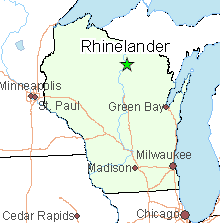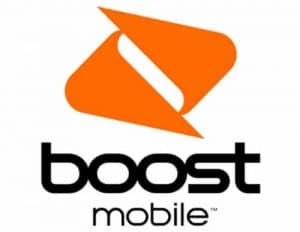 CBS and Viacom are one important step closer to merging under the CBS name, creating one of the country’s largest programming and broadcasting powerhouses.
CBS and Viacom are one important step closer to merging under the CBS name, creating one of the country’s largest programming and broadcasting powerhouses.
Last week, the two companies’ board of directors agreed on who would run the combined company that will be worth tens of billions of dollars.
Under the agreement, the top spot will go to current Viacom CEO Bob Bakish, according to a report in the Los Angeles Times. Bakish has been working with Viacom to transform its operations in a world increasingly dominated by cord-cutting and online streaming. Viacom had a reputation of being ruthless with its cable and satellite partners, demanding some of the industry’s highest rates for Viacom-owned cable channels, causing some cable operators to drop Viacom networks from their cable TV lineups.
It will not be the first time CBS and Viacom have been merged. Owner Sumner Redstone kept the two companies together until splitting them apart in 2006. Shortly after, Redstone’s declining health led to warring factions inside the two companies and several legal disputes with Sumner’s daughter Shari, who took over for her 96-year-old father. Former CBS CEO Les Moonves long opposed a merger between CBS and Viacom, but Moonves was forced out of CBS because of a burgeoning sexual harassment scandal. His replacement, acting CBS CEO Joseph Ianniello, is said to be sanguine about the merger deal, even though it would result in a demotion to managing CBS’ broadcast network, owned and operated TV stations, and Showtime.
The merged company would absorb Viacom into CBS, putting assets including Comedy Central, MTV, VH-1, Nickelodeon, BET, and Paramount Pictures under CBS ownership and control.
Three people close to the situation cautioned talks were still ongoing and not final.
Fox Business News reports the merger of CBS and Viacom may be imminent. Will they also acquire Discovery Networks? (4:53)


 Subscribe
Subscribe Verizon, AT&T, and T-Mobile’s 5G launches are blazing fast, when you can find a signal, but your phone will also get blazing hot while using it.
Verizon, AT&T, and T-Mobile’s 5G launches are blazing fast, when you can find a signal, but your phone will also get blazing hot while using it. Frontier Communications customers across Rhinelander, Wis. were left without phone and internet service for a day after a construction crew cut fiber optic and copper cables that Frontier earlier promised to move, but never did.
Frontier Communications customers across Rhinelander, Wis. were left without phone and internet service for a day after a construction crew cut fiber optic and copper cables that Frontier earlier promised to move, but never did.
 The Justice Department has helped engineer an approvable merger deal between T-Mobile and Sprint that will get antitrust regulators’ blessings as early as tomorrow, according to
The Justice Department has helped engineer an approvable merger deal between T-Mobile and Sprint that will get antitrust regulators’ blessings as early as tomorrow, according to  Regulators in the Trump Administration’s Justice Department claim shaving assets from a super-sized T-Mobile will preserve the competition that will be lost when Sprint becomes a part of T-Mobile. But Dish will emerge as a miniscule player with only a fraction of the 100+ million customers that AT&T and Verizon have, and at least 80 million customers signed with T-Mobile. One of the core arguments T-Mobile and Sprint made in favor of their merger was that each was too small to afford to deploy 5G service quickly and efficiently. Dish will have even less money to build out a basic 4G wireless network.
Regulators in the Trump Administration’s Justice Department claim shaving assets from a super-sized T-Mobile will preserve the competition that will be lost when Sprint becomes a part of T-Mobile. But Dish will emerge as a miniscule player with only a fraction of the 100+ million customers that AT&T and Verizon have, and at least 80 million customers signed with T-Mobile. One of the core arguments T-Mobile and Sprint made in favor of their merger was that each was too small to afford to deploy 5G service quickly and efficiently. Dish will have even less money to build out a basic 4G wireless network. WASHINGTON (Reuters) – The U.S. Justice Department would sue to block the merger of T-Mobile US Inc and Sprint Corp if the parties do not settle next week, CNBC reported on Thursday, citing sources.
WASHINGTON (Reuters) – The U.S. Justice Department would sue to block the merger of T-Mobile US Inc and Sprint Corp if the parties do not settle next week, CNBC reported on Thursday, citing sources.